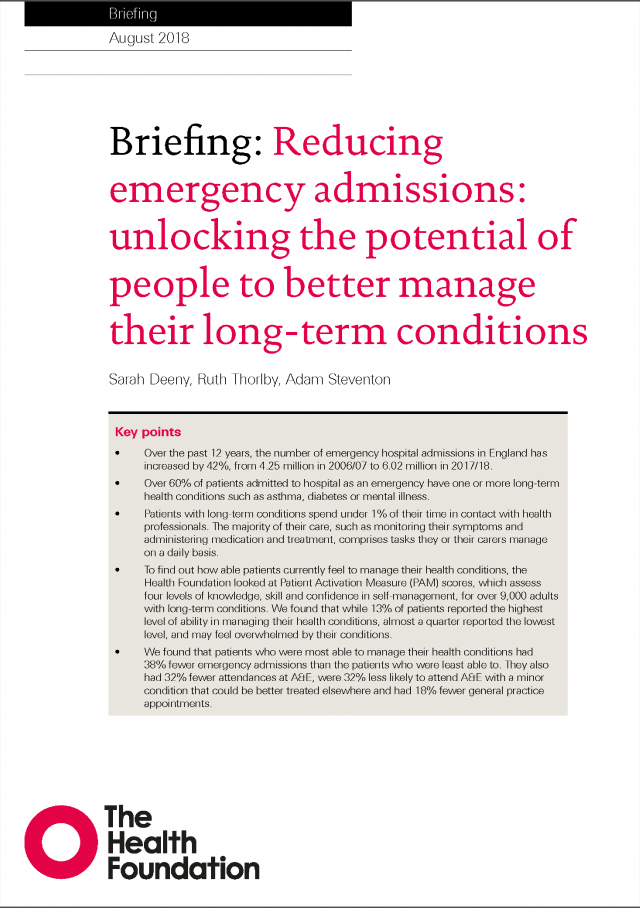Reducing emergency admissions Unlocking the potential of people to better manage their long-term conditions
August 2018

Key points
- This briefing summarises research that explores the link between how well patients feel able to manage their long-term conditions such as asthma, diabetes and depression and their use of health care.
- The findings show the NHS could reduce avoidable health care use and improve people’s quality of life, if they were better supported to manage their long-term conditions.
- The briefing points to solutions and calls for national policy makers and the local NHS to take action now, including by prioritising support for self-management in the NHS long-term plan.
Our research, published in BMJ Quality & Safety and summarised in this briefing, looked at Patient Activation Measures scores, which assess four levels of knowledge, skill and confidence in self-management, for over 9,000 adults with long-term conditions.
Read the full list of key points
It found that patients who were most able to manage their health conditions had 38% fewer emergency admissions than the patients who were least able to. They also had 32% fewer attendances at A&E, were 32% less likely to attend A&E with a minor condition that could be better treated elsewhere and had 18% fewer general practice appointments.
Furthermore, patients most able to manage a mental health condition, as well as any physical health conditions, experienced 49% fewer emergency admissions than those who are least able. Length of stay for elective care was 41% shorter among the patients most able to manage their health conditions compared with those least able.
In the best-case scenario, if the patients who currently feel least able to manage their conditions were supported to manage them as well as those who feel most able, this could prevent 436,000 emergency admissions to hospital and 690,000 attendances at A&E each year.
These findings show the NHS could reduce avoidable use of health services and improve people’s quality of life, by supporting them to better manage their health conditions through, for example, health coaching, peer support and apps.
The briefing points to solutions and calls for national policy makers and the local NHS to take action now, including by prioritising support for self-management in the NHS long-term plan.
Cite this publication
Further reading
Work with us
We look for talented and passionate individuals as everyone at the Health Foundation has an important role to play.
View current vacanciesThe Q community
Q is an initiative connecting people with improvement expertise across the UK.
Find out more


